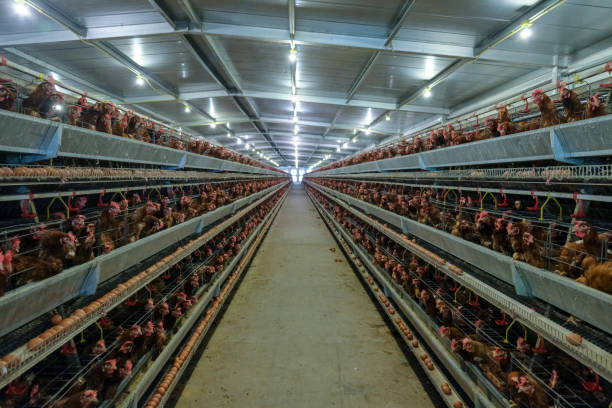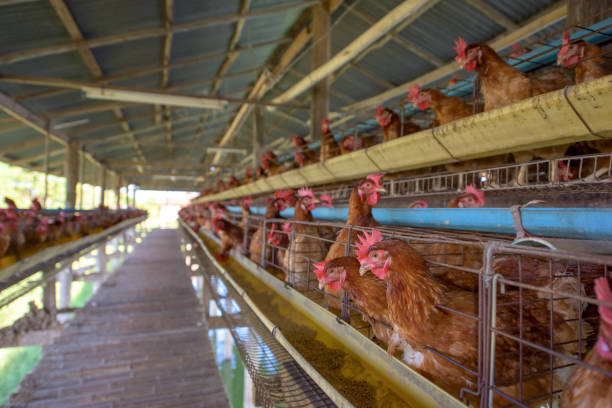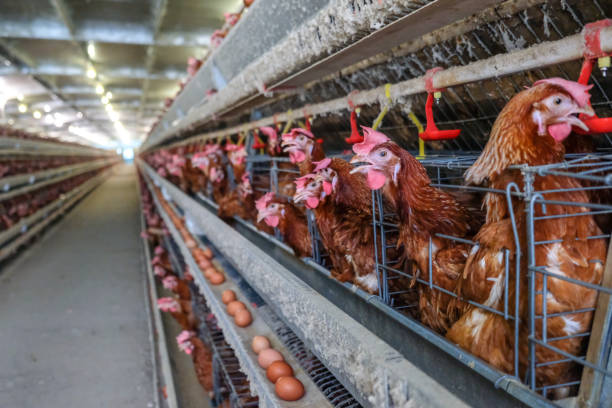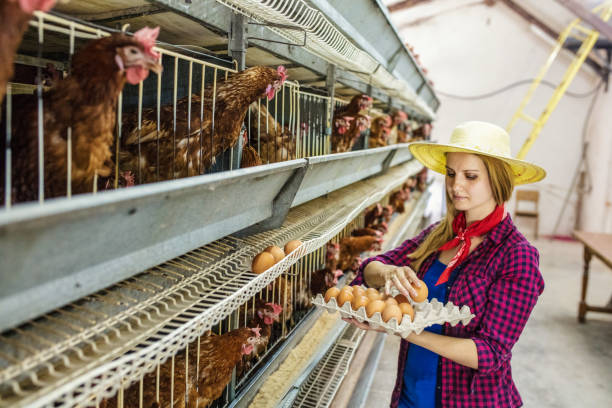
Improved Kienyeji Chicken Cages in Kisumu
Improved Kienyeji Chicken Cages in Kisumu
When it comes to poultry farming in Kenya—especially in regions like Kisumu—many small-scale and medium-sized farmers are turning back to traditional chicken breeds, popularly known as Kienyeji chickens. These indigenous birds are prized not only for their flavorful meat and eggs but also for their resilience and adaptability to local climates. However, raising them efficiently still requires modern solutions. That’s where improved Kienyeji chicken cages come into play. At Livi Mechanical, we’ve designed advanced chicken cage systems specifically adapted to the needs of Kenyan farmers, blending durability, smart design, and ease of management to help farmers optimize their production while reducing labor and losses.
Our improved cages go beyond basic housing—they’re a complete system for better poultry performance. Whether you’re farming in Nyando, Ahero, or urban pockets of Kisumu town, adopting structured housing means controlling disease, improving egg production, and maximizing space efficiency. Traditional free-range methods may seem low-cost at first, but they often lead to high mortality from predators, erratic egg collection, and poor sanitation. By upgrading to our modern Kienyeji chicken cages, farmers gain control, hygiene, and scalability—all key elements for turning backyard farming into a profitable agribusiness.
Smart Design Solutions for Local Challenges
One of the biggest hurdles facing poultry farmers in western Kenya is dealing with humidity, heavy rains, and pests. Our cages are built with galvanized steel wire mesh that resists rust and withstands tough weather. The elevated floor design keeps birds dry during the rainy season and prevents contact with droppings, dramatically reducing coccidiosis and other common infections. We’ve also reinforced the structure with sturdy frames so the cages last longer—even under daily use.
But it’s not just about durability. Our cages include integrated feeders and water troughs positioned to minimize waste and contamination. This is especially important when managing larger flocks—sometimes up to 500 birds per unit. The modular layout allows farmers to stack cages vertically, making efficient use of limited space. For urban or peri-urban setups where land is costly, this vertical scalability turns a small yard into a productive mini-farm.
We’ve also added features tailored for Kienyeji birds specifically. Unlike commercial broilers or layers, Kienyeji chickens are more active and need room to move and perch. That’s why we include internal perches and nesting boxes in select models. Nesting areas are enclosed and dimly lit to mimic natural laying conditions, encouraging hens to lay consistently and reduce egg scattering. You’ll spend less time searching for eggs and more time planning how to grow your business.
Maximizing Productivity with Better Management
Housing is just the start—successful Kienyeji farming depends on total flock management. With our improved cages, day-to-day operations become simpler and more systematic. Each tier is easily accessible for cleaning, health checks, and egg collection. The open-wire design ensures excellent ventilation, which is critical in hot and humid areas like Kisumu. Poor airflow leads to stress, lower egg output, and higher mortality, all of which our design actively combats.
Another major benefit? Biosecurity. When birds are housed off the ground and away from wild animals, the risk of Newcastle disease and fowl typhoid drops significantly. Farmers who used to lose 30–40% of their chicks annually now report survival rates above 90%. That stability builds confidence—and makes it easier to plan breeding cycles, market supply, and even invest in hatchery units.
We’ve worked with farmers across Nyanza region to test prototypes and gather real-world feedback. One farmer in Seme sub-county started with 100 Kienyeji hens in a single-tier cage system. After six months, he upgraded to a two-tier setup and expanded his flock to 300. His egg output jumped from 40 to over 200 per day, enabling him to supply eggs to local schools and hotels. He credited the increase not just to better genetics but to the improved environment created by the cage system.
From Setup to Success: Full Support Every Step of the Way
Starting or upgrading your farm doesn’t have to be overwhelming. At Livi Mechanical, we don’t just sell cages—we support your journey from planning to implementation. Before any order ships from our Zhengzhou facility to Mombasa port (and then to Kisumu), we offer site consultation, helping you assess space, climate, and target capacity. Need a custom size? No problem. Want solar-powered automatic watering installed later down the line? We can guide you through that too.
Delivery and assembly are handled smoothly with local partners familiar with road networks and rural access. Our team provides training on cleaning routines, feeder adjustments, and health monitoring. And because we work directly with manufacturers, our prices are competitive—often much lower than locally fabricated alternatives, without compromising on quality.
Beyond cages, we also offer配套 equipment like portable egg trays, chick incubators, and manure scrapers to round out your operation. Think of us as your technical partner in sustainable poultry farming. Whether you’re a new entrepreneur looking to enter the Kienyeji market or an experienced breeder wanting to scale up, we’ve got tools that make sense for your context.
If you’re ready to take your Kienyeji chicken farming to the next level, reach out today. Share your farm size, number of birds, and goals with us, and we’ll design a cage solution that fits your budget and ambitions. Leave your phone number or email, and one of our advisors will call or message you within 24 hours. Let’s turn your backyard dream into a thriving, income-generating enterprise.

Frequently Asked Questions
What makes improved Kienyeji chicken cages different from regular ones?
They’re designed with better materials, enhanced airflow, integrated feeding systems, and features suited to Kienyeji birds’ behavior—like perches and private nest boxes. They also elevate birds off wet ground, reducing disease risk.
Can I install these cages indoors or outdoors?
Yes, they work well in both settings. Outdoors, make sure to add a roof cover for rain protection. Indoors, ensure proper cross-ventilation to keep air fresh.

How many birds can fit in one cage unit?
It depends on the model. Standard single-layer units hold 50–100 birds comfortably. Stackable multi-tier systems can house 200–500 birds in a compact footprint.
Do you deliver to Kisumu and other parts of Kenya?
Absolutely. We regularly ship container loads to Mombasa and coordinate last-mile delivery to Kisumu, Nakuru, Eldoret, and beyond. Most orders arrive within 10–14 days after shipping.

Are replacement parts available if something breaks?
Yes. All components—from tray runners to door hinges—are replaceable. We keep spare part kits in stock and can send them separately anytime.
Is there training provided after installation?
Yes, our local technicians offer hands-on training on cleaning, feeding, health checks, and egg collection to ensure you get the most out of your cages.
Can the cages be customized for smaller spaces?
Definitely. We offer narrow-width models and vertical stacking options ideal for balconies, rooftops, or tight backyards common in urban Kisumu neighborhoods.
How does this system improve egg production?
By reducing stress, preventing disease, ensuring consistent feeding, and providing secure nesting areas, hens lay more regularly and suffer fewer broken or dirty eggs.
Are these cages suitable for chicks too?
Yes, we have starter cages with finer mesh and lower heights perfect for brooding Kienyeji chicks. As they grow, they can be moved to grower or layer cages.
What’s the expected lifespan of the cages?
With proper care, our galvanized cages last 10 years or more. Many customers in East Africa have been using theirs for over 7 years with minimal maintenance.
